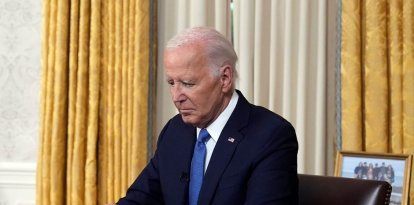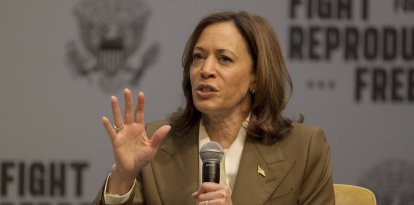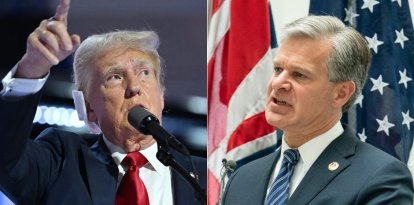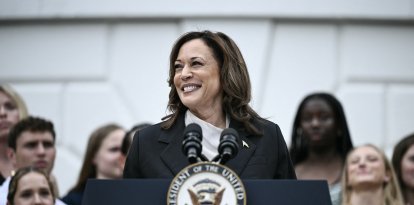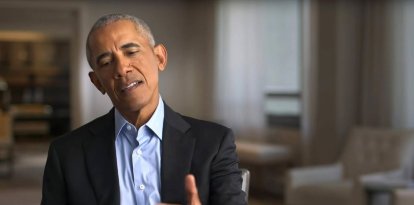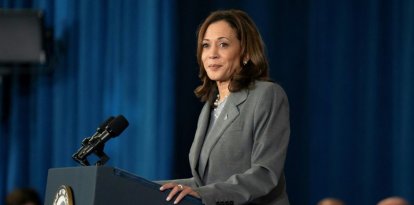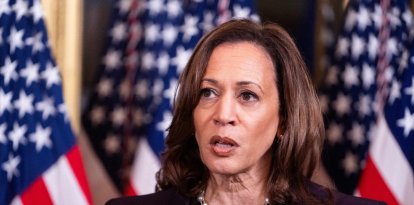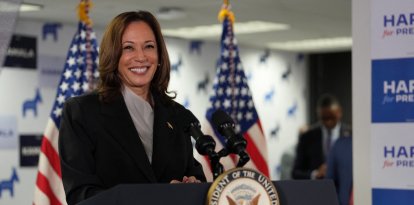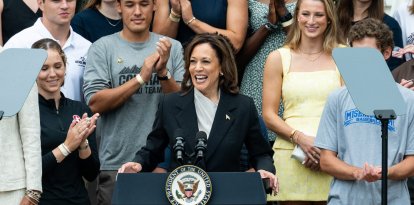Does it really ban TikTok? What you need to know about the bill advancing in Congress against the Chinese app
The bipartisan legislation advanced in the House of Representatives and arrived in the Senate, where its future is still uncertain. Meanwhile, Joe Biden has already stated that he would enact it if it reaches his desk and Donald Trump has spoken out against it.
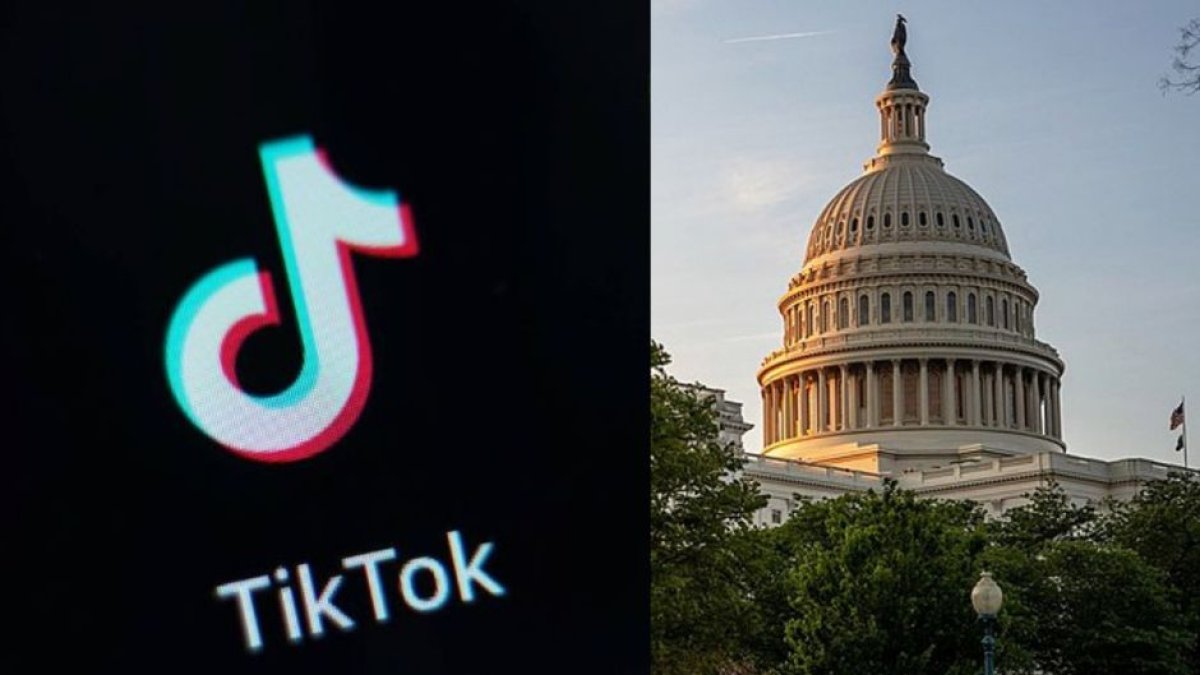
Wikimedia Commons- Cordon Press
The novel of TikTok and Congress seems to have no apparent end. Legislation that could potentially ban the application in the United States has advanced in the House of Representatives and reached the Senate, where, although the votes in favor would be sufficient to approve it, it will have to wait for its judgment. For now, opinions on the text divide party lines and even pit Joe Biden and Donald Trump against each other.
The bipartisan legislation raised controversy in Washington, D.C. While its supporters point out the need to pass it, explaining the seriousness of the threat posed by TikTok, its detractors claim that it directly attacks the First Amendment and could open a pandora's box to target other social media platforms in the future.
The text was approved by an overwhelming majority in the House of Representatives, with 352 votes in favor and 65 against. Although its fate is still uncertain in the Senate, Joe Biden already has his pen ready.
What does the bill that could potentially ban TikTok do?
Dubbed the 'Protecting Americans from Apps Controlled by Foreign Adversaries Act,' it was first introduced in the House in a bipartisan framework by, members of the Select Committee on the Chinese Communist Party in the House.
Specifically, the legislation would require TikTok's parent company, Beijing-based ByteDance, to sell TikTok within six months to maintain access to U.S. web hosting services and app stores. Therefore, to remain available, TikTok would have to sever ties with ByteDance, an entity "subject to the control of a foreign adversary," as defined by Congress in Title 10.
Likewise, it would create a procedure for the president to flag certain applications that are under the control of a foreign adversary, again under Title 10, and pose a national security risk. Precisely, these applications would face the prohibition on availability.
TikTok's response
"This bill is an outright ban of TikTok, no matter how much the authors try to disguise it. This legislation will trample the First Amendment rights of 170 million Americans and deprive 5 million small businesses of a platform they rely on to grow and create jobs," Alex Haurek, spokesperson for TikTok, told The Hill before the House vote.
Already in the Senate, the app's management hopes it can convince its constituents to back down. Specifically, TikTok paid for several popular content creators to travel to Capitol Hill to explain why the app should remain available. "This is 100 percent of what we rely on to put food on our table to pay our bills," expressed JT Laybourne, 39.
Even Shou Chew, the company's CEO, is expected to appear before Congress in the coming days.
What does the Senate say?
In the Senate, the drivers of the bipartisan legislation are Marco Rubio (R-FL) and Mark Warner (D-VA), who happen to be the ranking members of the Senate Intelligence Committee.
"We are united in our concern about the national security threat posed by TikTok — a platform with enormous power to influence and divide Americans whose parent company ByteDance remains legally required to do the bidding of the Chinese Communist Party," they said in a joint statement following the vote in House.
"We were encouraged by today's strong bipartisan vote in the House of Representatives, and look forward to working together to get this bill passed through the Senate and signed into law," they added.
The bipartisan cause united two political extremes in the Senate, including Josh Hawley (R-MO) and John Fetterman (D-PA). The former proposed moving forward with the vote as quickly as possible, emphasizing the seriousness of the threat.
"NOW is the time to act on TikTok and stop China spying. The Senate should take up this bill immediately," he wrote on his X account, formerly known as Twitter.
On the same social media platform, Fetterman endorsed the text and explained that its spirit does not attack social media but a particular threat.
"Let me be very clear: this legislation to restrict TikTok does NOT ban the app. It separates ties to the Chinese Communist Party and prevents them from accessing the data of Americans—especially our kids. Leader Schumer should put this bill on the floor soon. China bends American companies to its will all the time. It's long overdue to push back and this bill does exactly that. I will vote yes," he said.
Opposition to the bill is also partly bipartisan. For example, Republican Rand Paul (R-KY) has already announced that he will vote against it because he believes it is a "draconian measure that stifles free expression, tramples constitutional rights, and disrupts the economic pursuits of millions of Americans."
Another who has already defined his vote is Ed Markey (D-MA). The Massachusetts progressive said one must examine one's own before looking at foreign apps. "From Meta to Amazon to Discord, US-owned companies are preying on children & teens for profit. We don't need to ban TikTok to fix their invasive practices. Passing my COPPA 2.0 is the answer. We must act now," he wrote on his X account.
Senate leadership opted for extreme caution. Chuck Schumer (D-NY), the Democratic majority leader, stated that he will "review" the text when it arrives, although he did not commit to moving forward with a vote in the coming weeks.
Biden and Trump, on opposite sides of the legislation
The president spoke about it on Friday afternoon with some reporters and confirmed the following: "If they pass it, I will sign it."
On the other side of the aisle, while making it clear that TikTok is a threat to national security, Trump was against the text. The former president based his position on the grounds that an eventual ban would mainly benefit Meta, which Mark Zuckerberg owns.
"I don't want Facebook, which cheated in the last election, to fare any better," he wrote on his Truth Social account. "They are a true enemy of the people," he concluded.













